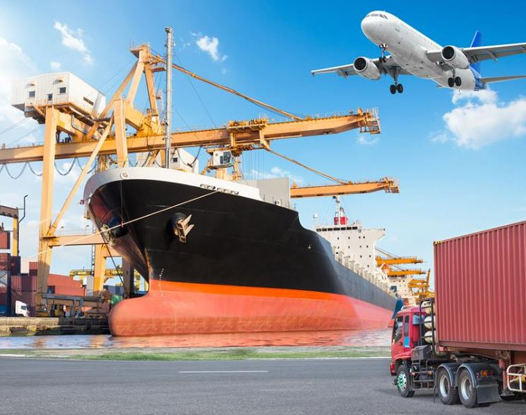Cargo Expedition: The Vital Position of Logistics in International Commerce
Cargo trips play a crucial role in the seamless movement of goods around the
world and are the foundation of commerce and trade. Be it transporting raw
materials or processed products, or other perishable items, cargo expeditions
ensure supply chains function efficiently and safely. Globalization is
accelerating the global interconnectedness of markets the need for efficient and
reliable shipping services has never been more urgent. The logistics industry is
complex and combines modern technology with sturdy infrastructure to address the
demands of modern businesses worldwide. From air-based freight to ocean shipping
as well as the transport of goods on land, cargo excursions constitute the
backbone of global trade, bridging the gaps between suppliers, manufacturers and
customers.
The most crucial element of a successful cargo
expedition is the range of shipping options that can accommodate specific
shipping demands. Air freight, known for its efficiency and dependability is
frequently used to transport products with high value or that require time, such
as electronics, pharmaceuticals and other fashion-related products. Ocean
shipping, on other hand, dominates the transportation of bulk merchandise, and
offers cost-effective solutions for things like grain, oil as well as machinery.
Transport by land, including railroads and trucks, plays a crucial role in the
delivery of last-mile goods as well as regional connectivity. When you integrate
these modes into multimodal transportation systems the cargo journeys can be
more efficient as well as reduce the time it takes to transit, to ensure that
the goods get there on schedule.
The logistics of cargo transport require
careful plan and coordination in order to guarantee the safe movement of cargo.
Shipping companies need to take into account elements like temperatures, customs
rules, and security protocols when planning the transport of the cargo.
Additionally, they need to optimise delivery routes and schedules in order to
reduce costs and delays. Many times, cargo trips involve multimodal
transportation that involves the movement of cargo between different forms of
transport. In the case of cargo, it could be shipped by sea to a major port,
followed by truck to a distribution center. Being able to effortlessly switch
between different modes of transport is vital to ensuring efficiency and
minimizing disruptions to logistics.
In a world where the logistics
industry grows and develop, technology is playing a growing role in shaping
cargo expeditions. The latest developments in tracking systems, digital
documentation, and the automated handling of ekspedisi cargo muat are changing how cargo is
handled during the journey. GPS and RFID technologies allow continuous tracking
of cargo that provide the shipping business and customer with up-to-date
information about the location of the cargo. Technology advancements make it
simpler to check the status of cargo, making sure that delay or problems are
swiftly dealt with. Digitalization also has improved procedures for
documentation, decreasing the need for paper-based records and making the
process of customs clearance more efficient.
The successful cargo journey is heavily dependent
on the knowledge and coordination of logistics professionals. These
professionals manage intricate supply chains and ensure compliance with
international trade regulations and requirements for customs. They constantly
try in order to predict and solve problems that could arise, including delays,
geopolitical tensions, or disruptions in weather. Their ability to collaborate
between various modes of transportation along with time zones and languages is
essential to maintain the efficiency of global trade. Training and development
for skills are crucial in this sector that allows workers to be able to respond
to technological advancements and the ever-changing needs that the market has to
offer.
Cargo journeys are an essential component of modern-day commerce,
connecting production and consumption globally. They rely on advanced
transportation systems, cutting-edge technology, and sustainable practices to
meet the demands of businesses as well as consumers. Their commitment and
knowledge of logistics experts ensure seamless operation of supply chains. This
is transportation of cargo a crucial element of expansion. As the industry
continues to change, it will always be in the forefront of trade across the
globe, creating the flow of goods as well as fostering relationships that go
beyond borders. The future of cargo expeditions depends on collaboration,
creativity with a firm focus on excellence.
Comments
Post a Comment